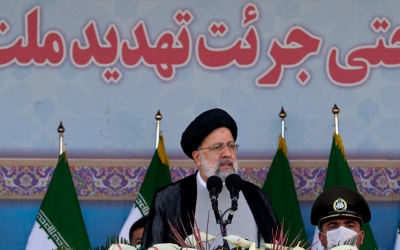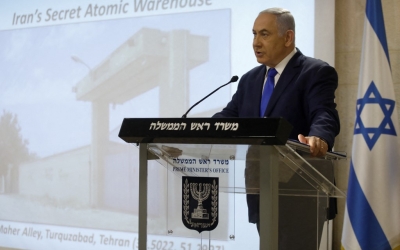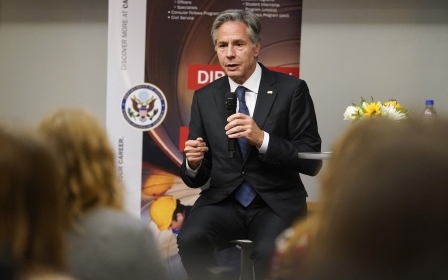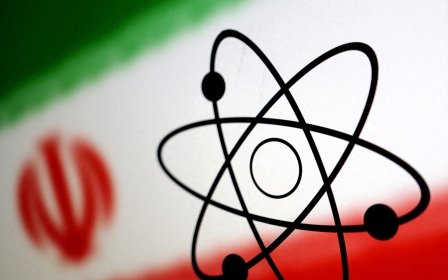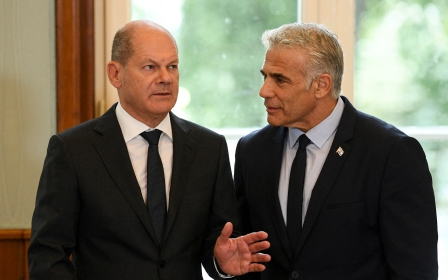Israeli sabotage should not be allowed to kill the Iran nuclear deal
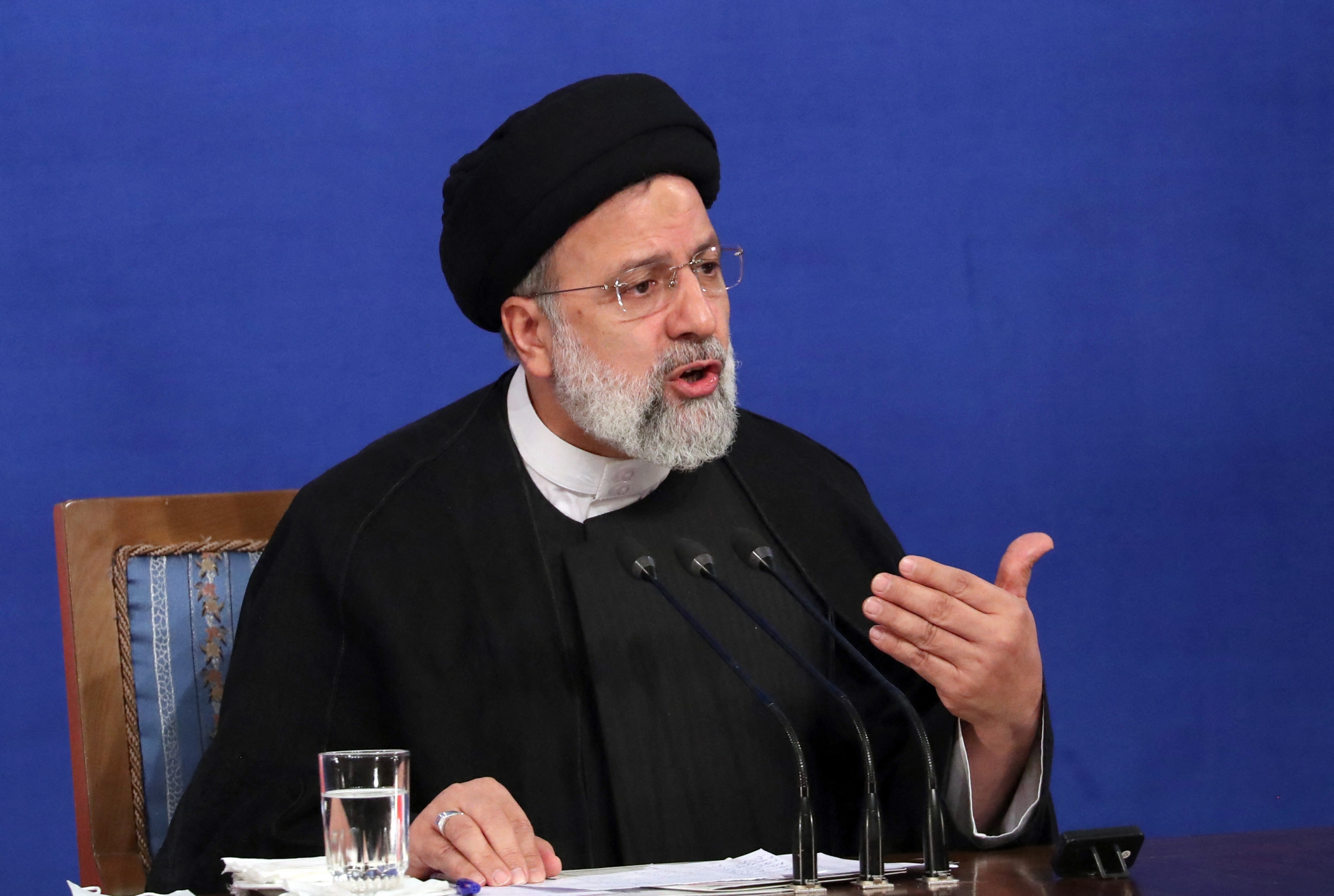
On 12 September, US Secretary of State Antony Blinken said it was “unlikely” that the US and Iran would reach a new nuclear deal anytime soon. Negotiations between Iran and the world powers to revive the Iran nuclear deal, known as the Joint Comprehensive Plan of Action (JCPOA), are faced with a new deadlock.
Israel has not missed any opportunity to subvert President Biden’s policy to revive the JCPOA
The International Atomic Energy Agency (IAEA) report on 6 September indicates that "no progress" has been made in resolving questions about past traces of nuclear material in Iran's three undeclared sites.
"Iran's position [on the IAEA probe] contradicts its legally binding obligations and jeopardises prospects of restoring the JCPOA," said the latest statement from European powers Germany, France and the UK.
The spokesperson for Iran’s Atomic Organisation, Behrouz Kamalvandi, responded that Iran has been fully cooperative regarding the three alleged sites and has sent information and answers to the IAEA’s questions. “The IAEA must not pass judgements on the Iranian nuclear programme based on fabricated documents provided by the Israeli regime with specific political goals,” he said.
Isolating Iran
New MEE newsletter: Jerusalem Dispatch
Sign up to get the latest insights and analysis on Israel-Palestine, alongside Turkey Unpacked and other MEE newsletters
A roadmap was signed between Iran and IAEA right after the nuclear deal and finalised the assessment of issues relating to possible military dimension (PMD) issues in December 2015 and before JCPOA’s implementation in January 2016.
"The agency has no credible indications of activities in Iran relevant to the development of a nuclear explosive device after 2009. Nor has the agency found any credible indications of the diversion of nuclear material in connection with the possible military dimensions to Iran’s nuclear programme,” the IAEA concluded.
In May 2018, former President Donald Trump withdrew from the JCPOA and re-imposed the world’s most stringent sanctions and pursued the “maximum pressure” policy on Iran. A year later, in response, Iran increased its uranium capacity and enrichment levels.
While the military dimension issues were resolved under the nuclear deal, in 2019, the IAEA requested that Iran answer questions about possible undeclared nuclear activities and materials. The question that arises is whether the safeguards issues constitute the major obstacle standing in the way of reviving the JCPOA.
Israeli sabotage
Since the inception of the nuclear talks, Israel has done everything to prevent resolving the Iranian nuclear issue through diplomacy.
In 2015, in an unprecedented event, then Israeli Prime Minister Benjamin Netanyahu insulted a serving US president in a speech to Congress on the emerging nuclear deal. House Minority Leader Nancy Pelosi dismissed the speech by the Israeli prime minister as an “insult to the intelligence of the United States”.
Netanyahu claimed responsibility for Trump’s decision to pull the US out of the Iran nuclear deal. “We convinced the US president [to exit the deal] and I had to stand up against the whole world and come out against this agreement, and we didn’t give up,” Netanyahu said.
Even during the current US administration, Israel has not missed any opportunity to subvert President Biden’s policy to revive the JCPOA. Over the past decade, Israel has conducted several covert operations against the Iranian nuclear programme. From sabotage, bombings, and cyber attacks such as Stuxnet and Duqu, to espionage and the assassination of Iranian nuclear scientists, Israel has done it all.
Israel’s campaign of fear against Iran’s nuclear programme has been ongoing for 40 years. Over the past four decades, every now and then Israel has claimed that Iran is only a few years away from a nuclear bomb. For example, in 1995 Netanyahu claimed “Iran is three to five years from being able to produce a nuclear weapon.”
In 2009, General Yossi Baidatz, the chief of research for Israeli military intelligence, said that Iran would have a working weapon by no later than the end of 2010. In 2013, Israeli intelligence officials claimed that Iran could have a nuclear bomb by 2015 or 2016.
Moreover, Iran is deeply suspicious about the IAEA Director General Rafael Grossi’s close relations with Israel. In a statement in March 2020, Iran reiterated that “copies of papers presented to Iran by the agency as the basis for its requests are neither authentic nor related to the open-source, but rather claimed by the Israeli regime to have been acquired through a so-called secret operation.”
On 3 June 2022, Grossi visited Israel to meet with the prime minister to discuss the Iranian nuclear programme. Right after the visit, on 9 June 2022, the IAEA passed a resolution saying that Iran must provide credible information in response to the IAEA’s questions. “Grossi’s visit to Israel out of phase with IAEA impartiality, professionalism,” the Iranian foreign minister reiterated.
The 'most inspected' country
An informed Iranian source who asked that their identity remains anonymous told me that “Iran has no problem with addressing all IAEA questions. We are ready to sign a roadmap similar to 2015 with the agency to finalise the IAEA’s technical questions within two months, right after signing the revived agreement. In the case of the contaminated locations, by counting every milligram of Iranian-enriched uranium, the IAEA can verify the truth."
Rather than killing the JCPOA and pushing Iran towards a nuclear bomb, the world powers should focus on reviving it
They added: "However, the Israelis themselves could have contaminated some locations through their agents in order to block the deal and may continue such covert sabotages. Yet, we should not let the Israelis drag the IAEA and the Iranians into such a trap in order to keep the nuclear file on the IAEA agenda indefinitely."
In 2011, during Mahmoud Ahmadinejad’s presidency, at an international conference, a former chief of the Israeli intelligence service (Mossad) told an Iranian ambassador: "You are negotiating with the six world powers on your nuclear programme but, in the end, we will decide on Iran's nuclear programme.”
Israel pushed Trump to withdraw from JCPOA and, as a result, Iran's stock of uranium enriched to 60 percent was estimated to be 55.6 kg, enabling Iran to produce enough material for a bomb if it decides to.
Israel's campaign to thwart the revival of the 2015 Iranian nuclear deal has shown success. "Israel is conducting a successful diplomatic campaign to stop the nuclear agreement and prevent the lifting of sanctions on Iran," Israeli Prime Minister Yair Lapid said.
However, the outcome of attempts to sabotage the revival of the JCPOA is predictable: more pressure and sanctions on Iran and as a result, more stockpiling of highly enriched uranium (potentially 90 percent) and “zero breakout time” by Iran.
In case of a referral of Iran’s nuclear dossier to the United Nations Security Council to reimpose previous resolutions, Iran will likely suspend its implementation of the nuclear non-proliferation treaty (NPT). And in case of any military strike, Iran will likely move towards producing a nuclear bomb.
The world powers need to rethink their current approach. Israel is the only country in the Middle East in possession of nuclear bombs, is one of only four countries in the world that does not permit IAEA inspections, and is not a signatory to the NPT.
Iran is not among those four, is a member of the NPT, does not have any nuclear weapons, and is the most inspected country worldwide by the IAEA.
Rather than killing the JCPOA and pushing Iran towards developing a nuclear bomb, the world powers should focus on reviving the JCPOA and push Israel to follow the deal’s principles to achieve a Middle East nuclear-weapon-free zone as the UN General Assembly mandated in 1974.
The views expressed in this article belong to the author and do not necessarily reflect the editorial policy of Middle East Eye.
This article is available in French on Middle East Eye French edition.
Middle East Eye delivers independent and unrivalled coverage and analysis of the Middle East, North Africa and beyond. To learn more about republishing this content and the associated fees, please fill out this form. More about MEE can be found here.



